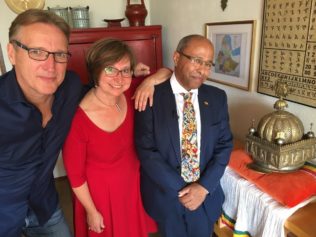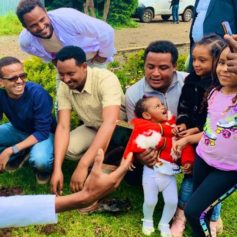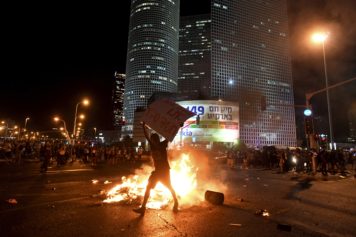For months, Gutama Gallatobati, a proud farmer and mechanic of Oromo descent languished in an Ethiopian prison over accusations he burned an Ethiopian flag. While inside, guards physically abused him.
Sada Ahmed, a mother of five children and wife of a wealthy husband lived a good life in Ethiopia until she was accused of financially supporting the rebel group Oromo Liberation Front (OLF). Her husband disappeared in Sudan and she was forced to flee to Egypt.
The Oromo make up 40 percent of the Ethiopian population. However, the minority Tigray government has persecuted the Oromo people, jailing more than 20,000 suspected OLF members. As a result, many have been forced to flee, leaving behind family, friends and jobs.
Ahead of World Refugee Day on Thursday, the Oromo who have fled to Egypt are again endangered.
Over the last few weeks, there has been an emergence of xenophobic attacks against Ethiopians on the streets of Cairo, motivated by Ethiopia’s goal to build the “Grand Renaissance Dam.”
The Ethiopian government is planning to dam the Blue Nile for hydroelectric power, a move Egypt worries will affect its water supply.
In response to the project, Egypt’s government has reached a new level of bellicose rhetoric. In a televised meeting of key government officials recently, former presidential candidate Ayman Nour suggested Egypt launch air strikes to stop construction of the dam. Others proposed destabilizing the Ethiopian government by funding rebel groups.
The Oromo in Egypt are now caught in the middle, and say they are facing increased hostility from Egyptians.
In response, hundreds of Oromo refugees staged a sit-in outside the Cairo office of the United Nations High Commissioner for Refugees (UNHCR) demanding safety. They’ve refused to leave, sleeping on the grass outside the building, near leaking sewage from a surrounding apartment complex.
Jeylan Kassim, head of the Oromo Sons/ Daughters Refugee Association, has played a leading role in organizing the protests. “We will not leave until the UNHCR will protect us,” he told Al Jazeera.
A heavy silence blankets the Oromo as they sit on scraps of cardboard listening to members of the community discuss in frustration fruitless meetings with UNHCR representatives.
The U.N. says it cannot provide temporary shelter or food outside the UNHCR building because they do not have authority over the land, nor the resources to supply those camping out for the nearly two weeks.
The U.N. has offered a telephone hotline for refugees to call with their problems, as well as legal assistance.
Read the rest of this story on Al Jazeera


